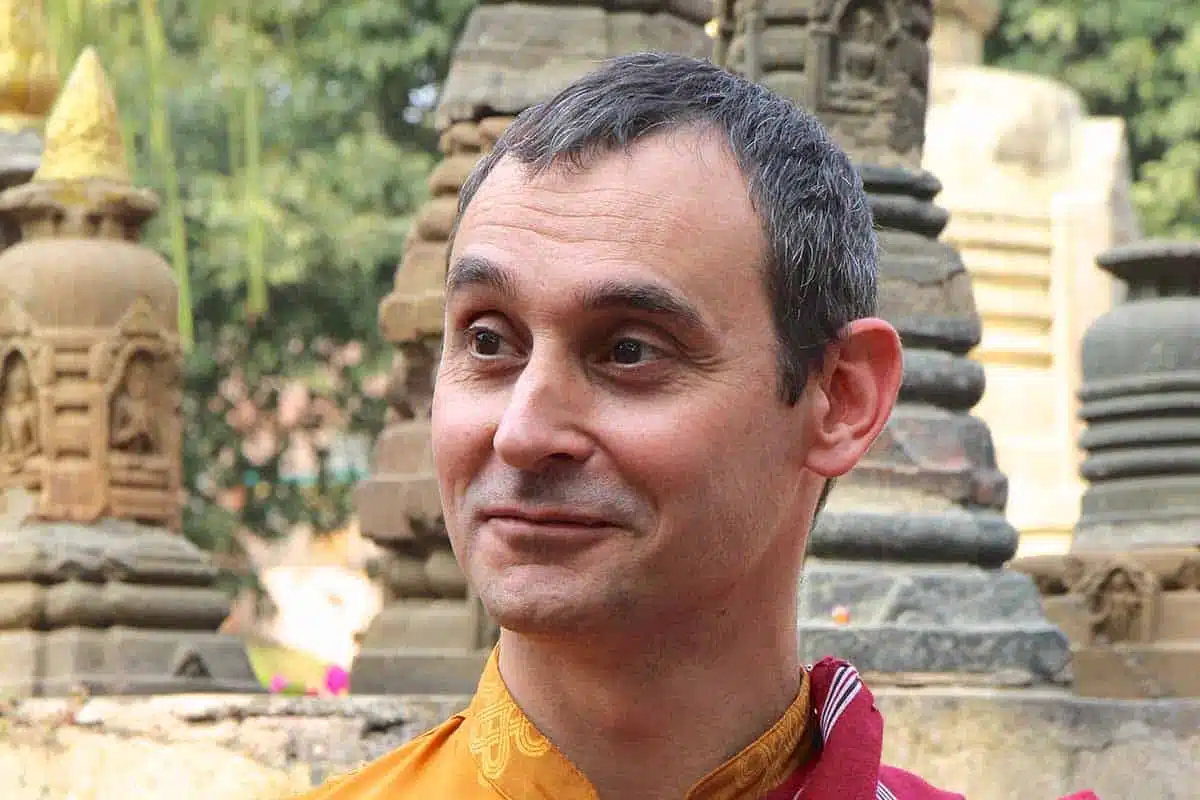Thought, the Mother of Action?

Written By Mila Khyentse
Blog | What about me?
This second post of the Meaning of Action series, “Thought, the Mother of Action?” by Mila Khyentse, deals with the origin of action.
« Thought, the Mother of Action? »
In the first article of this series, “Truth or Dare?“, we saw that setting an action in motion dwells in simplicity.
Developing an action, doing something, is generally natural to us, except when we complicate the process, when we cloud the action with a maelstrom of contradictory thoughts that, on the contrary, prevent us from taking action. Indeed, in our society we often confuse thinking about action with action itself. Thinking about action is the prelude to setting it in motion, but it is not the action.
Thinking the action is the meaning, or lack thereof, that we give to the action. In the Great Perfection and Buddhist traditions, which are often parallel, the thought of action is called “intention”. It’s the meaning of the action. The why of the action. So it is not understood as a mere thought about an action, but really the founding thought of the action, its very essence or origin. In a more modern vocabulary, we’d call it “vision”.
“If my underlying intention is clear, focused, and well thought-out, the resulting action will be equally clear. Similarly, the greater my intention, the greater my action.”
This intention is what sets the action in motion: if an action is driven by deep reflection, it is likely to unfold in the way it was intended. On the other hand, if an action is simply thoughtless, it is a reaction to an action, and we are in a situation where the intention is not well defined and the consequences of the action seem random. It’s the same thing when there is only discursive reflection in relation to an action to be taken: the action doesn’t come to fruition because the thinking is not deep.
So what does it mean to think deeply about the action?
It’s thinking that takes into account all the factors that determine the action. We’ve already talked about (discursive) thought, but it never acts alone: its alter ego, emotion, is also present. With them often comes the reaction or sensation – in relation to a given act, thought, or situation – that determines whether that act is pleasant, unpleasant, or neutral.
In fact, for these traditions, an act does not exist in itself, but is the result of a chain of factors known as the twelve interdependent links: ignorance, karmic formations, consciousness, name and form, the six spheres of perception, contact, sensation (pleasant, unpleasant, or neutral), thirst or desire, grasping (of existence), becoming, birth, and finally degeneration and death.
An act, an action, is therefore always caught up in a process: it is not free. It depends on conditions and is influenced by the way I see and feel the world.
Let’s take an example. I want to do something for the planet because I feel that we’re living in a critical period and that it’s about time we took action. This simple thought or sentence, preliminary to action, carries with it everything we’ve just mentioned: point of view on the world, intention (vision), emotion (sense of urgency and perhaps even fear), resolution (wish to act), etc. This, then, is the meaning of action: to perceive what lies beneath the simple act of setting things in motion. If we can perceive this, we’re no longer in a simplistic reaction mode, but we realize why we want to act, and we can then direct the outcome of the action. In other words, if I’m confused, my action will be confused. If I’m clear, my action will be clear.
However, for the Great Perfection, the path to realizing the meaning of action does not end there. Where I think I’m acting, there’s really no action at all. It’s just a projection, an infinite dream in which thoughts, actions, emotions, and sensations are constantly changing and alternating ceaselessly. If we widen our view and try to remember each and every one of our actions, we realize that it’s impossible. All our actions disappear from our memory as time passes, as if they never existed. As if in an endless dream…
If I really want to put an end to this dream, I have to go even further to discover the origin of the action, and it is at this point that I have to endow myself with a “noble intention”.
If my underlying intention is clear, focused, and well thought-out, the resulting action will be equally clear. Similarly, the greater my intention, the greater my action. This noble intention will give rise to “noble action”, which is a universal dimension of action. This will enable me to develop a much broader and deeper vision. In this way, noble action is guided by the will to benefit all beings without distinction. In Dzogchen, we always associate action with compassion, doing with giving, activity with benevolence.
Broad intention is the basis for action beyond that motivated by selfish desire, fear, or confusion. It is the foundation of the queen of actions: enlightened activity, which we’ll discuss in the next article.
More Posts
High Diving
In “High Diving” by Mila Khyentse, everything is about diving and hovering… in the Olympic Games of Great Perfection.
Nenikekamen!
With “Nenikekamen!” Grégoire compares the marathon, the flagship event of the Olympic Games, to the Dzogchen path.
Opening Ceremony
Nils compares the Olympic Games Opening Ceremony to the introduction in Dzogchen, kicking off the Great Perfection Summer Games series!




